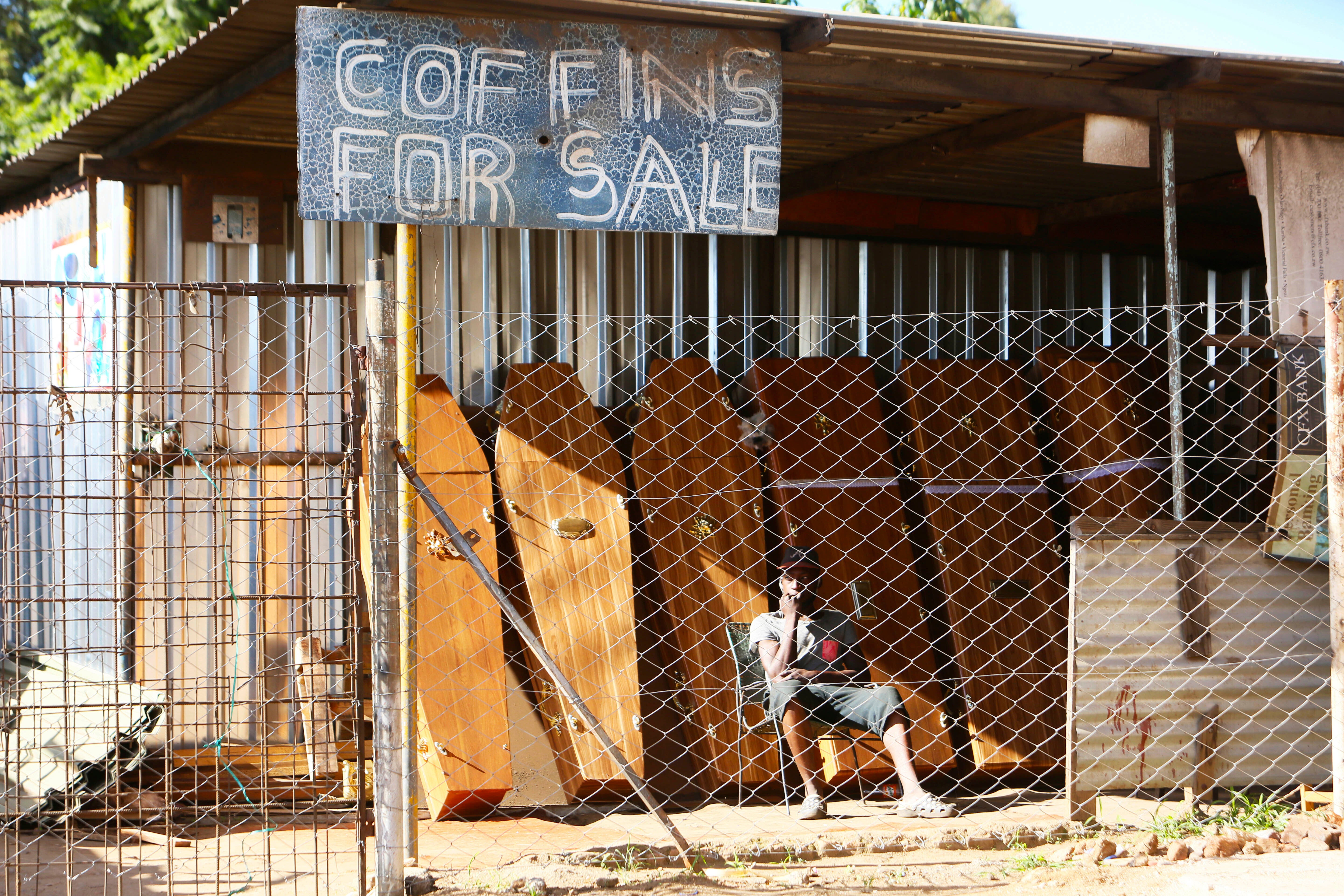Zimbabwe bans traditional funerals to battle COVID-19 spike
Zimbabwe, battling a spike in new COVID-19 cases, has banned families from transporting their dead relatives between cities, as part of new measures stop traditional funeral rites that are believed to be increasing the spread of the disease

Your support helps us to tell the story
From reproductive rights to climate change to Big Tech, The Independent is on the ground when the story is developing. Whether it's investigating the financials of Elon Musk's pro-Trump PAC or producing our latest documentary, 'The A Word', which shines a light on the American women fighting for reproductive rights, we know how important it is to parse out the facts from the messaging.
At such a critical moment in US history, we need reporters on the ground. Your donation allows us to keep sending journalists to speak to both sides of the story.
The Independent is trusted by Americans across the entire political spectrum. And unlike many other quality news outlets, we choose not to lock Americans out of our reporting and analysis with paywalls. We believe quality journalism should be available to everyone, paid for by those who can afford it.
Your support makes all the difference.Zimbabwe, battling a spike in new COVID-19 cases has banned families from transporting their dead relatives between cities, as part of new measures stop traditional funeral rites that are believed to be increasing the spread of the disease.
The announcement stops the custom where families take the dead to their areas of birth for ceremonies and burial. Police have also banned public viewing of bodies and the tradition of having a corpse stay overnight in the family’s home before burial.
“Police will only clear body movements for burial straight from a funeral parlor/hospital mortuary to the burial site,” police spokesman Paul Nyathi said Monday in the state-run Herald newspaper.
Zimbabwe, like many other African countries, initially recorded low numbers of COVID-19 but has recently experienced a spike in cases. There are fears that a new, more infectious variant of the virus arrived from South Africa when scores of thousands of Zimbabweans living in South Africa returned home for the festive season.
“The strain has been imported into Zimbabwe but we are in the process of conducting genetic sequencing to confirm this,” ministry of health director for epidemiology and disease control Portia Manangazira said.
South Africa is currently battling a resurgence of the disease that is rapidly overwhelming its hospitals, health officials there report.
Zimbabwe, whose once robust public health system has deteriorated, recorded 21,477 cases and 507 deaths on Jan.10, up from the slightly more than 10,000 cases and 277 deaths at the beginning of December, according to government figures.
Zimbabwe’s 7-day rolling average of daily new cases has seen a dramatic rise over the past two weeks from 0.72 new cases per 100,000 people on Dec. 27 to 5.97 new cases per 100,000 people on Jan. 10, according to figures from Johns Hopkins University. The 7-day rolling average of daily deaths in Zimbabwe has also increased sharply over the past two weeks from 0.03 deaths per 100,000 people on Dec. 27 to 0.12 deaths per 100,000 people on Jan. 10.
___
Follow AP coverage of the coronavirus pandemic at:
https://apnews.com/hub/coronavirus-pandemic
https://apnews.com/hub/coronavirus-vaccine
https://apnews.com/UnderstandingtheOutbreak